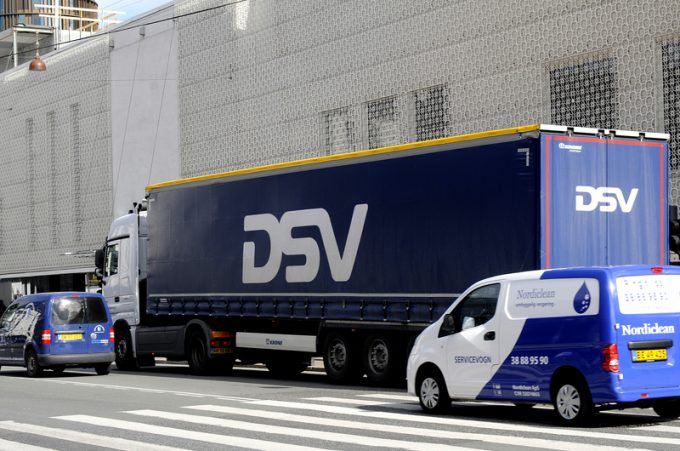DSV chief reticent on Schenker: the focus on growing market share
DSV focused on gains in market share, organic growth and making investors confident in its ...

Maintaining a tight grip on costs kept DSV moving in the right direction in the first half of the year.
Profits and revenues were up in the face of an “undeniably difficult” market, its first-half results revealed today.
The latest numbers will likely be its last before it completes its takeover of Panalpina and, despite the optimism, chief executive Jens Bjorn Andersen voiced some concerns.
When one investor pointed to the trend of declining air freight being a bellwether for an approaching drop-off in ocean volumes, Mr Andersen concurred.
“We have been struggling to figure out what is driving the negative performance in air cargo, it could be automotive,” he told investors and analysts this morning.
“It could also be that a lot of pre-buying occurred in the run-up to tariffs, and maybe stock volumes are a little high, but it is correct that air is an early indicator of an overall trend.
“That said, air and sea commonly follow global GDP performance and we expect this to continue to grow, so perhaps we are a little more optimistic than others.”
Even with a difficult second quarter in air freight, when volumes fell 5%, group revenue for the first half climbed 6% to Dkr40bn ($5bn), largely propelled by the strength of DSV’s other divisions, including sea freight which reported a 15% increase in revenue to Dkr9.9bn.
Its contract logistics division, its smallest, DSV Solutions, however, maintained the forward momentum of last year with growing turnover and profits. Revenue climbed 3.3% to Dkr6.1bn, generating profits of Dkr432m, up just shy of 2018’s 9%.
Mr Andersen said: “Global transport markets are soft – especially within air freight – but DSV has managed to outgrow the market while still delivering market-leading profitability.
“We expect the Panalpina transaction will close in Q3, and we look forward to combining two strong companies and leveraging our extensive networks and expertise.”
Profits (ebit) for the group climbed more than 13.5%, to Dkr3bn, largely generated by the performance of its freight forwarding division. Conversely, its road solutions unit saw a 4.3% decline in profitability, attributed to fewer working days over the period.
The company reiterated its concern over the China-US stand-off. It said: “The continued political uncertainty about trade tariffs between US and China, accompanied by a deceleration in global investment, continued to impact global trade volumes in the second quarter of 2019.”
But Mr Andersen concluded: “We are very pleased with the strong results for the second quarter.”
Comment on this article